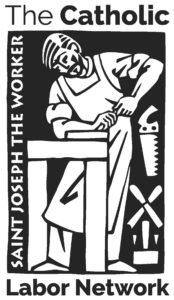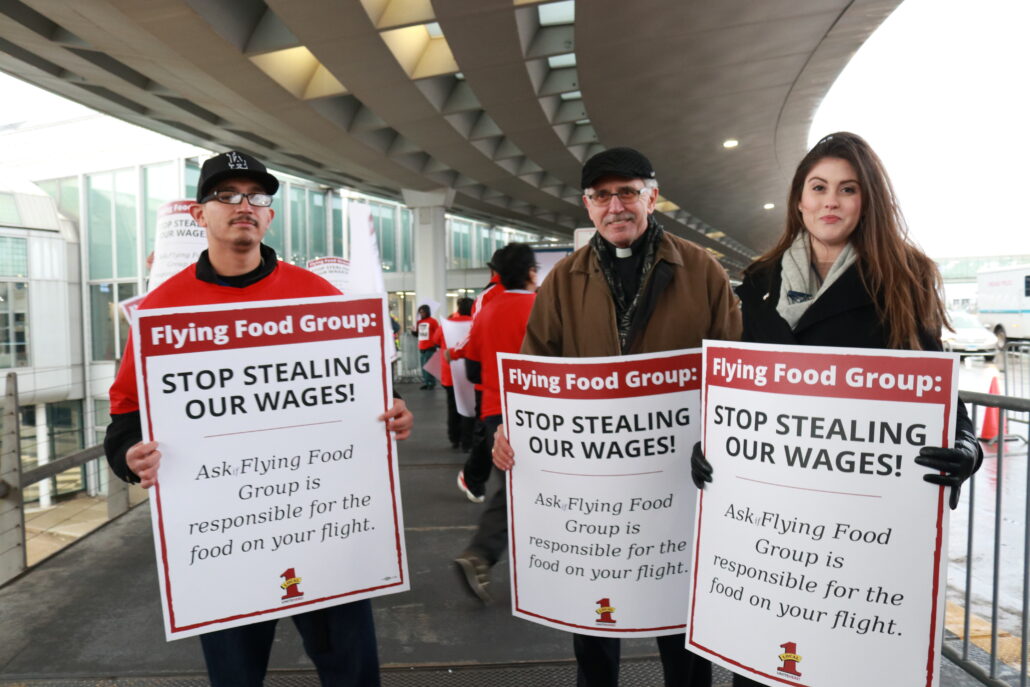The Catholic Labor Network is a place for Catholics — lay, religious and clergy — who find inspiration in Catholic Social Teaching on labor and work.
On this site we come together to exchange information about the Church and social justice and to support working people in their struggles. We promote the cause of workers and Catholic social teaching in our labor unions, parishes and other organizations.
Join Us!
The Catholic Labor Network brings together Church and labor organizations to organize solidarity with workers seeking justice and promote Catholic Social Teaching on labor and work. But we can only do it with your help.
President Begins Term with Alarming Moves against Worker Rights
Modern Catholic Social Teaching began with Pope Leo XIII’s encyclical letter Rerum Novarum reflecting on injustices against workers in the modern industrial economy and, importantly, defending their right to organize in trade unions for collective bargaining. We in the Catholic Labor Network have been deeply alarmed that President Trump has begun his term with significant moves against workers’ union rights.
In 1935, the US Congress passed the National Labor Relations Act (NLRA) and President Franklin Roosevelt signed it into law. The NLRA made it unlawful for employers to fire or otherwise retaliate against workers who seek to form a union in their workplace. The NLRA created an independent five-member National Labor Relations Board (NLRB) charged with protecting workers in their exercise of that right. Presidents appoint members to serve staggered five-year terms on the NLRB subject to Senate approval. They cannot be removed except “for neglect of duty or malfeasance in office.”
When the President assumed office, there were only three sitting Board members in place, due to political conflicts between the President and the Senate. In late January, the President dismissed Board member Gwynne Wilcox – not because of malfeasance but because he was dissatisfied with her decisions on the board strongly in support of workers’ rights. The action leaves the NLRB without a quorum and thus unable to address disputes.
The NLRB protects the rights of the majority of American workers who are employed in the private sector. Federal employees enjoy more limited union rights under the Civil Service Reform Act of 1978, rights protected by the Federal Labor Relations Authority (FLRA). Their unions are not empowered to negotiate wages and benefits, but they are permitted to negotiate certain terms and conditions of work. Under President Biden, some of their unions negotiated contracts allowing certain employees to work remotely. On February 3, the President’s Acting Director of the Office of Personnel Management issued a memo overriding these contracts and ordering these employees to report to work in the office.
This may seem like a minor issue, but a number of these employees have relocated under the telework arrangements in their contracts and will now have to move again in order to keep their jobs. More importantly, if the President and his subordinates are empowered to ignore union contracts whensoever they choose, the President has effectively eliminated their right to collective bargaining and union protections. And to prevent the FLRA from acting to uphold these rights the President fired its pro-worker chair.
At a time when the President’s staff have placed large numbers of employees on administrative leave without due process, and when he has empowered billionaire Tesla owner Elon Musk to identify vast swathes of federal employees for dismissal, this denial of rights to federal employees is doubly alarming. Musk has a well-established anti-labor animus. Workers at his two most successful companies, Tesla and SpaceX, have faced retaliation for exercising their right to collective action. Musk’s lawyers have responded in the courts by advancing a novel argument that the NLRB is unconstitutional (an argument also endorsed by erstwhile rival Amazon). Such a determination would overturn nearly a century of Supreme Court precedent and strip most American workers of their most important legal protections.
The president’s initial actions in office suggest a dire threat to the legal rights of American workers. The Catholic Labor Network urges its members to organize in defense of American trade unions and pray that he changes course.


